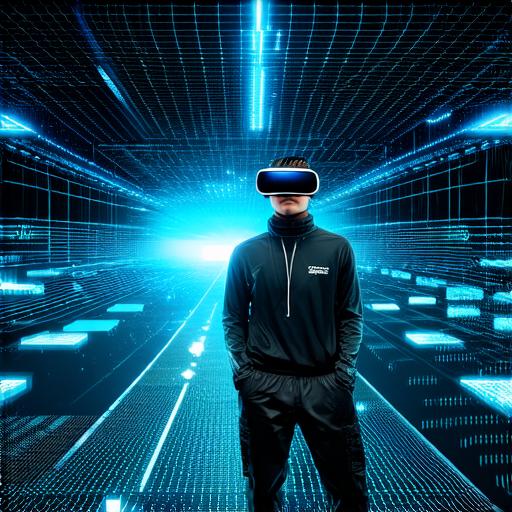The Early Days of the Metaverse
In the early days of the metaverse, virtual worlds were primarily used for gaming and entertainment purposes. Online role-playing games (MMOs) like Ultima Online, EverQuest, and World of Warcraft allowed players to immerse themselves in fantastical environments, interacting with each other and NPCs through avatars.
These virtual realms offered a sense of escapism and community, fostering social connections among players from around the world.
The Emergence of Augmented Reality and Virtual Reality
As technology advanced, augmented reality (AR) and virtual reality (VR) technologies emerged as powerful tools for enhancing the metaverse experience. AR overlays digital information onto the real world, allowing users to interact with virtual objects and environments in a more seamless way.
VR, on the other hand, fully immerses users in a simulated environment, offering a more realistic and engaging experience.
The Impact of Social Media on the Metaverse
Social media platforms have also played a significant role in shaping the metaverse. The introduction of Facebook, Twitter, Instagram, and other social networking sites has enabled users to connect with each other across vast distances, creating new forms of online communities and fostering global collaboration.
Moreover, the rise of influencers and content creators within social media has given birth to new business models within the metaverse. Influencers can now monetize their online presence by promoting products and services within virtual worlds, while content creators can earn a living by producing engaging content for platforms like YouTube and Twitch.
The Future of the Metaverse: Trends and Predictions
As we look to the future, several trends are shaping the evolution of the metaverse. One such trend is the increasing convergence of physical and digital worlds, as technologies like 5G, artificial intelligence (AI), and the Internet of Things (IoT) continue to advance.
Another trend is the growing emphasis on sustainability and environmental responsibility within the metaverse. As awareness of climate change and resource depletion grows, virtual worlds are being designed with an eye towards eco-friendliness, incorporating sustainable practices and technologies into their design.
Finally, advances in AI and machine learning are expected to revolutionize the way we interact with virtual worlds. These technologies will enable more personalized and responsive experiences, as well as the development of intelligent agents that can learn from user behavior and adapt to their needs.
FAQs
1. What is the difference between the metaverse and virtual reality?

While both the metaverse and VR involve immersive digital environments, the metaverse refers to a collective virtual shared space created by the convergence of various forms of human activity, including gaming, entertainment, education, commerce, and artistry. VR, on the other hand, focuses on fully immersing users in a simulated environment.
2. How has the rise of social media impacted the metaverse?
Social media platforms have enabled users to connect with each other across vast distances, creating new forms of online communities and fostering global collaboration. These platforms have also provided an avenue for content creation and sharing, allowing people to showcase their talents and connect with like-minded individuals.
3. What are some examples of how the metaverse is being used in education?
The metaverse offers numerous opportunities for education, including interactive learning experiences, virtual field trips, and simulations for training purposes. For example, students can explore historical sites virtually or practice surgical procedures within a simulated environment.
4. How has the rise of influencers and content creators impacted the metaverse?
Influencers and content creators have given birth to new business models within the metaverse, allowing people to monetize their online presence by promoting products and services within virtual worlds or producing engaging content for platforms like YouTube and Twitch.
